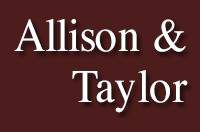
It’s a hard question to ask: What do you think a former employer would say about you if asked during the hiring process for your dream job?
It is professional etiquette – and a smart career move –to stay in touch with your former bosses, says Allison & Taylor, the nation’s oldest professional reference checking firm.
 As your career advances, staying connected with past employers could pay dividends many times over when they provide you with favorable professional references, and failing to maintain the relationships could have long-reaching professional consequences.
As your career advances, staying connected with past employers could pay dividends many times over when they provide you with favorable professional references, and failing to maintain the relationships could have long-reaching professional consequences.
“If a prospective employee’s former boss can’t be bothered to return your call requesting a professional reference, what does that say about their opinion of the job-seeker?” asks Jeff Shane, of Allison & Taylor. “All too often, job seekers focus on refining their resumes and interview skills, but fail to nurture their professional references. A strong personal endorsement, or lack thereof, can make or break a successful job search.”
Allison & Taylor estimates that 50 percent of their references come back as “lukewarm” or “negative.” It’s imperative to your career success to receive positive feedback from your professional references, Shane says. If you are not 100 percent convinced that your professional references and past employers will relay positive comments about you to prospective employers, consider having your references professionally checked.
If a reference provides unfavorable or inaccurate information to a prospective employer, there are steps that can be taken to rectify the situation.
To enhance the chances of a favorable reference, Allison & Taylor suggests you follow these 5 Fundamental Rules of Job Reference Etiquette:
- Call your former bosses and ask them if they are willing to be good job references for you. Be sure to thank them for supporting you in your job search if they agree.
- Let them know each time you give out their name and email address.
- Keep your former positive references advised of your progress in climbing the corporate ladder and your educational progress. Provide them with career updates. He/she will be more inclined to see you in a stronger light as you progress.
- Remember that spending time with a potential employer takes valuable time out of your former bosses’ day, so try to give something back. For instance, after receiving a good job reference, write a personal thank-you letter or (at a minimum) send an email. Better still, send a thank-you note with a gift card, or offer to take your former boss to lunch/dinner.
If you win the new position, call or email your former boss and thank them again for the positive references. At the same time, you can provide your new professional contact information.








